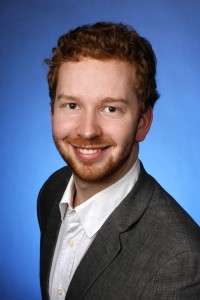Donald Trump’s election as the new president of the United States of America sent shockwaves through the whole world. Some called it the US’ Brexit… to the power of ten. Again, the (lower) middle class has given the political and financial elites the finger [1]. This protest vote exemplifies just how deep the divide in the US society is, but we Europeans should not be snooty about it – we have equally disturbing political leaders, such as Victor Orban, Marine Le Pen, Geert Wilders, Frauke Petry and others. And we also had alarming elections, such as the European Parliamentary election in May 2014, which with the huge increase of seats for Eurosceptic parties, marked a watershed. Since then there have been many more worrying election results and developments. If European citizens with democratic and liberal convictions do not speak up and get their act together very soon, disaster might strike Europe in April or May 2017, when the French elect their president. What we have to ask ourselves is: what has brought about such disquieting and depressing times, where fear and anger seem to dominate reasoning and civilised exchange of ideas?
Where does all the fear come from? People fear death, illness, poverty, isolation and insignificance. But we also fear pigeons (one of my personal fears), heights, flying or many other things. Maybe the most discussed fear nowadays is the fear of Überfremdung which literally means ‘too much unknown’. Fear is a very complex issue, which cannot be discussed in a blog post in all particulars. Yet as much has been written about the increase of fear in our societies; I would like to take a step back with you and try to analyse what creates and what fuels fear. Lately Europe has been sadly characterised by the economic deprivation of many of its citizens, especially in the south, by refugee tragedies, terror attacks and most recently by different signs of disintegration such as the outcome of the Brexit referendum, but also the worrying rise of right wing populist parties in many EU Member States.
In post-war Germany, we were lucky for a long time in this respect, but the refugee influx also changed my home country as it intensified the discussions about the manifold social questions, which have not been sufficiently addressed. This helped the new right-wing party ‘Alternative für Deutschland’ (AfD) to gain many votes, just recently in federal state-level elections. The AfD positions itself as a ‘protest party’, which strongly profits from fearful voters (s. study by the ‘Deutsches Institut für Wirtschaftsforschung’ (DIW) (German Institute for Economic Research) from 2016). Angela Merkel referred to this new style of politics as ‘postfaktisch’ (post-factual) meaning that people do not care much about facts, they only wish to see their own feelings represented in politics. The feeling of fear and anger is currently so strong that it motivates many people who usually do not vote to bring out a vote of protest, which per definition cannot go to any established party; it goes to politicians like Donald Trump or in the German case the AfD.
We cannot be surprised that citizens with no or low-income, and those who fear social decline, favour protest parties. In Germany, for instance, the split between rich and poor has widened visibly in the recent years, the growth of the gross domestic product (GDP) does not reach the pockets of very many German citizens. A few weeks ago the German Minister of Finance Wolfgang Schäuble presented the budget for 2017 with an additional tax income of nearly 14 billion euro. Meanwhile the Bertelsmann Foundation released a study about growing child poverty in Germany from 2011 to 2015. The study counts nearly 2 million children, which are in need of basic provision from the state that is nearly 15 percent of all children in Germany. This is unacceptable and a shameful record for a rich country.
In psychology fear or anxiety is described as a fundamental thus irrational and subconscious warning and protection function. Without it human beings can hardly survive. In my opinion the most important fears we have to take into account in the current situation are: fear of social decline, fear of economic decline and fear of a (real or perceived) uncertain future in general. A growing number of people deal with these fears by blaming someone else, a strategy which is often just one step away from xenophobia.
Sometimes fear hides behind concerns. I propose to differentiate between fear, which is irrational by definition and concern, which consists of rational as well as irrational elements. For instance, I might be concerned to die in a car accident. This concern is based on the fact that many car accidents happen. However, even though this concern makes me cautious in the street or influences my driving behaviour, it does not prevent me from getting into a car, because I know that there are many dangers which I cannot avoid while living. You might say that the differentiation between fear and concern is too artificial, but distinguishing between these two extremes helps to get a clearer vision of what we are talking about. This is especially important as the term ‘concerned’ is at least in the German debate often misused; the ‘besorgten Bürger’ (concerned citizens) claim to have a rational cause, while they hide racism or their phobias behind superficial reasonability. This becomes more concrete, if we again look at the recent federal election in the German state of Mecklenburg-West-Pomerania. One, if not the only, central issue of the electoral campaign were refugees coming to Mecklenburg-West-Pomerania, which has the lowest population density in Germany and is among the German states with the lowest prosperity.
Following German allocation legislation, Mecklenburg-West-Pomerania accommodated 23,080 refugees in 2015, which is 2.03 percent of all refugees which arrived in Germany in that year. This figure shows that refugees should not have been the central issue of the electoral campaign, but they certainly were. The AfD reached an alarming 20.8 percent of the votes with a pretty straight-forward anti-refugee campaign. This is even more depressing, if one considers that the AfD competed for votes for the first time in Mecklenburg-West-Pomerania and that other topics were not the main reason to vote AfD as surveys and newspapers have shown. Behind the fear of refugees is a desperate protest against the established parties. This seems to be the main reason to vote AfD in Germany and it was similar in the presidential election in the USA.
The populist rise goes hand in hand with a rise of terror attacks. Since 2015 until now Germany has known terror attacks of different kinds, especially a rise of xenophobic or Islamophobic motivated attacks and also attacks by Islamists. The ‘ (Police Criminal Statistics) and the ‘Politisch Motivierte Kriminalität’ (Political Motivated Crime Rate) count a quintupled rise of attacks on refugee accommodations from 199 in 2014 to 1031 in 2015. Furthermore, parts of the media and populists of all kinds try to benefit from these incidents in terms of clicks on articles or votes by heating up the public debate with alarmist speech and disinformation, fuelling the feeling of insecurity and fear among German and European citizens. Resulting also in a discourse where strong opinions dominate differentiating analysis: black and white displaces grades of grey.
The growing level of citizens disenchanted with politics is not only characteristic for the USA or Germany; it is a Europe-wide development, from France with its Front National, via Great Britain with UKIP and other European countries, most of which have right-wing populist or even openly racist parties. For the French case the book ‘Retour à Reims’ (2009) by Didier Eriborn explains thoroughly, based on the author’s own family history, why Front National and other right-wing parties are so powerful at the moment and why a large group of citizens feels totally disconnected with today’s politics and politicians. For those who can read German, I highly recommend the interview ‘Ihr könnt nicht glauben, ihr wärt das Volk’ (You cannot believe, you are the people) Eriborn gave to DIE ZEIT in July 2016. In his detailed analysis you will find the argument, that the weak and divided Left is losing its core constituency: working class and middle to low income voters.
Based on this analysis, how can we as a society can become more resilient to fear and fear mongering? There are no easy answers, but without any doubt education and social policy play a central role in reducing fears in society in the long run. A generally more efficient, targeted and financially better equipped social policy throughout Europe is the only way to stop right-wing parties. Without easy access to education, permeability of the education system, good nurseries and good opportunities for parents to take care of their children we cannot expect to win back the disenchanted.
Besides social policies, I consider the personal confrontation of every individual with his or her fears and the exchange with people of other social groups is key. There are many ways to exemplify the value of confrontation and exchange – I would like to pick one single policy with which politics effectively can reduce fears: social housing. Instead of accommodating refugees on the outskirts of cities (creating new banlieues), accommodation should be decentralized. Placing refugees in every part of cities and villages would be a direct measure to integrate refugees in our societies and a fundamental contribution to encourage exchange and reduce fears.
This reflection is based on the contact hypothesis, which is not a new, but a proven concept to reduce fear. It was developed 1954 by Gordon Allport and says that frequent contacts with members of other social groups, like ethnic minorities, reduces prejudices. The theory has been proven to be significant, e.g. in the German case ‘Prejudice and minority proportion: Contact instead of threat effects’ (2006) by Wagner et al., which says that in districts with a relatively high share of foreigners, prejudices are reduced. Research finds such effects even for imagined contact. Taken together, if contact is missing, prejudices and fears cannot be dismantled, which could be the case of Mecklenburg-West-Pomerania, where we find a relatively small share of foreigners in the population.
It is about time that all democratic and liberal citizens who believe in an open society should leave their filter bubble and facebook timelines to reconnect with the angry, fearful, abandoned and protesting part of our societies. How exactly? I wish I knew, but what I do know is that if we do not find an answer to this question very soon, we will leave our countries and Europe to the Le Pens, the Wilders and the rest of the demagogues.
You can download the article in PDF here.
[1] For detailed statistics look at http://www.nytimes.com/interactive/2016/11/08/us/politics/election-exit-polls.html?_r=0
Daniel Lüchow (1988) is from Germany and graduated in European Studies from the University of Hanover. He currently works for a Green member of the Lower Saxony State Parliament.


